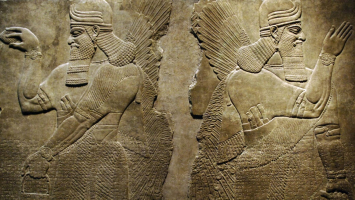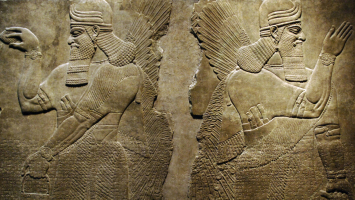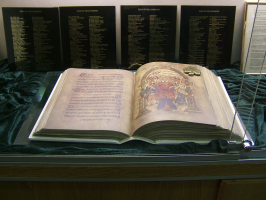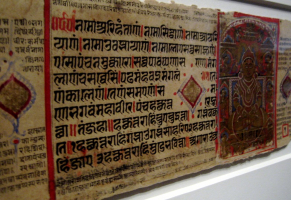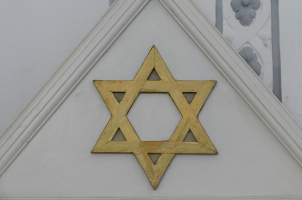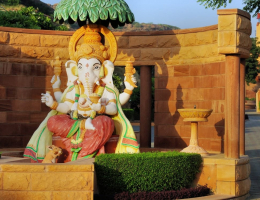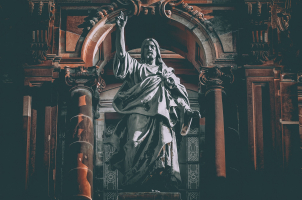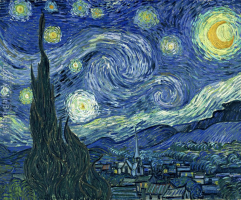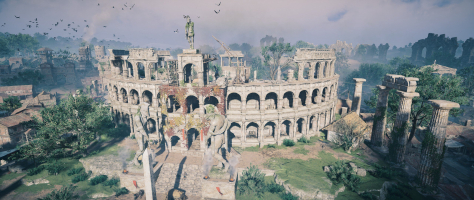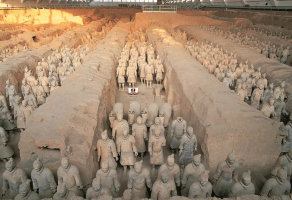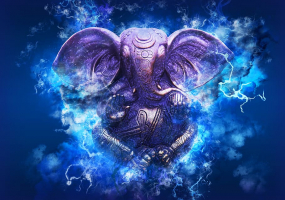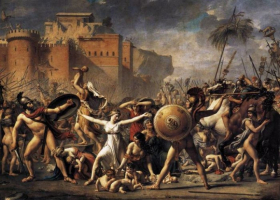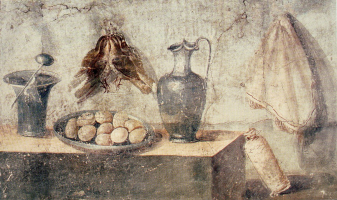Top 6 Most Influential Gods Of Mesopotamia
The earliest civilizations in human history were fiercely independent and distinctive in their own right. The worship of the most significant Mesopotamian gods ... read more...was one of the few things that brought them together. And here are the 6 most influential Gods of Mesopotamia.
-
The Mesopotamian god of the sky was called An, or "Anu" by the Akkadians. An was regarded as the highest god of their pantheon, the father of many other Mesopotamian deities and one of the most influential gods of Mesopotamia, much like the sky gods of other ancient mythology, such as Zeus. An was regarded as the supreme authority figure in Mesopotamian civilization and was also recognized as one of the three gods responsible for the universe's creation. He is the first deity listed in various Mesopotamian literature and was revered as the origin of both divine and human rule. However, he had a relatively passive role, and he wasn't frequently worshiped. While he is well attested as one of the temple's divine occupants, there is no evidence that the main deity of the temple ever changed, and Inanna was already associated with it in the earliest sources. An was revered throughout the Cradle of Civilization, although he was frequently referred to as Uruk's patron god due to a purported special connection to the Sumerian city.
The physical and social world of the Mesopotamians was sustained by An, the supreme deity and ultimate authority figure. An was thought to manage the laws that ruled the universe and to hold the entire universe inside himself. In line with this, An was regarded by the Mesopotamians as having the final say in all legal disputes and absolute authority over their system of government. Therefore, kings would defend their claim to An's favor in order to maintain their right to govern. Similar to Mesopotamian officials, they would claim that An endorsed their laws in order to justify their policies.
Legal texts like the Code of Hammurabi would compel adherence by claiming that people who disobeyed their laws would face An's wrath. An was somewhat removed from daily events in Mesopotamian civilization in comparison to other gods. He was unquestionably one of the most significant gods in their pantheon, though.
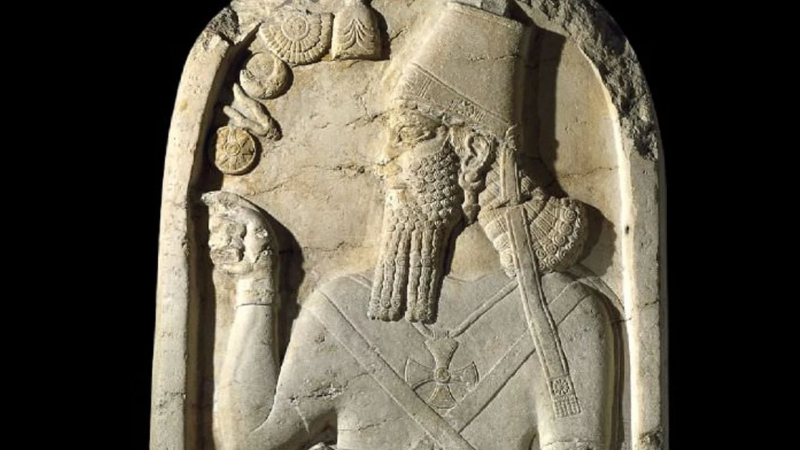
Photo: World History Encyclopedia 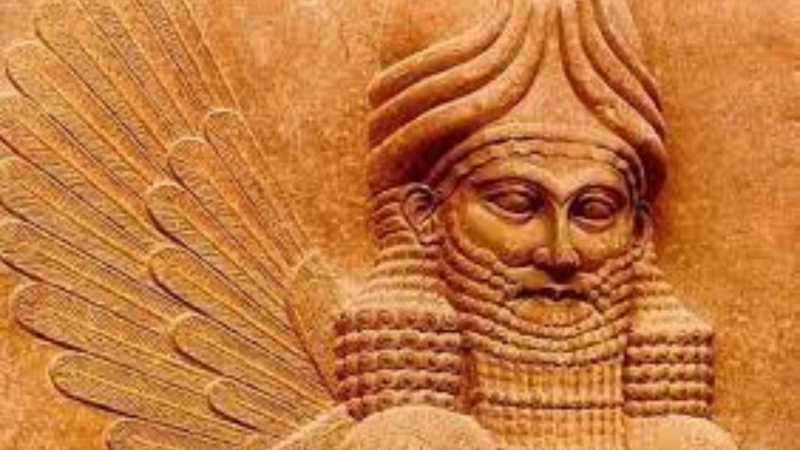
Photo: Facebook -
The water and wisdom deity of Mesopotamia was Enki, also known as Ea. The Abzu, which the Mesopotamians thought was a freshwater ocean buried beneath the earth and the origin of all streams, rivers, and lakes, was considered to be home to Enki. Enki was one of the three Mesopotamian gods who participated in the creation of the universe, and one of his main functions was that of a creator deity. The Tigris and Euphrates rivers are thought to have been made out of Enki's semen, and he is also credited with creating the first humans out of clay. Enki was a god of fertility, deceit, magic, and wisdom in addition to being the god of water and wisdom. Enki was strongly identified with certain cities, as was the case with many Mesopotamian deities, and was thought to be the protector of the city Eridu.
The Mesopotamians were an agrarian society that relied on water for subsistence. Enki, a god connected to the creation of water, was revered as being crucial to human existence and the survival of cities. Enki was also seen as a defender of humanity, protecting mortals from the destructive anger of other gods. Enki, the deity of wisdom, was frequently consulted by people who needed assistance as well as by rulers and administrators looking for the best course of action. The Mesopotamians relied on Enki to sustain their spiritual health in addition to their bodily and mental health. As a result of his connection to magic, Enki was credited with creating rituals for summoning demons and driving out evil. Priests, who the Mesopotamians relied on to keep them safe and maintain their spiritual welfare, were then taught these techniques by Enki. As a result, Enki played a variety of responsibilities that were crucial to the Mesopotamians.
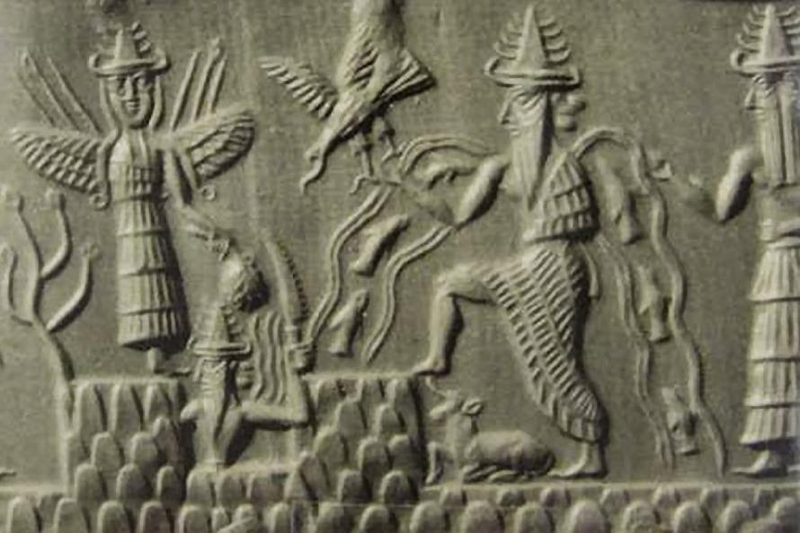
Photo: humansbefree.com 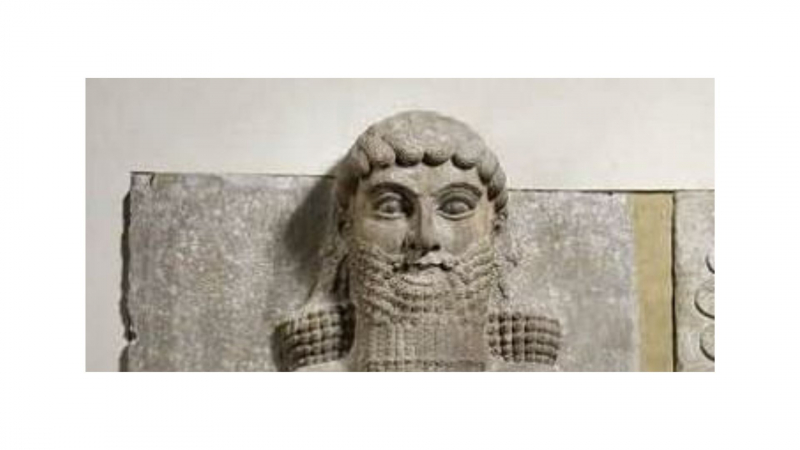
Photo: World History Encyclopedia -
Only after the supreme god And was Enlil one of the most influential gods of Mesopotamia. The principal Mesopotamian deity of air, soil, and storms was Enlil. He was thought to have some influence over destiny, nevertheless, and his orders were unchangeable. He was named as one of the three gods responsible for the universe's creation, together with An and Enki. But since the Mesopotamians thought that Enlil was largely in charge of catastrophes and natural calamities, they saw him as a god of both destruction and creation. Enlil is credited with causing the Great Flood, which nearly wiped off humanity, in the Gilgamesh Epic. Enlil had temples throughout the Fertile Crescent, including Assur and Babylon, and although his main temple was in the city of Nippur, he was worshiped there as well.
His titles, such as "The Great Mountain" and "King of All Lands," convey the significance of Enlil. The Mesopotamians credited Enlil with creating and destroying everything, as he was the source of all things. Events on earth were attributed to the will of Enlil, a deity with unchangeable authority and control over fate. As a result, this god played a crucial role in the Mesopotamian worldview. Enlil was vital to the political organization of Mesopotamian communities in addition to his cosmological significance. Enlil, as a powerful divinity, was thought to provide kingship to chosen leaders. Mesopotamian monarchs who desired legitimacy for their rule did so by invoking Enlil's endorsement
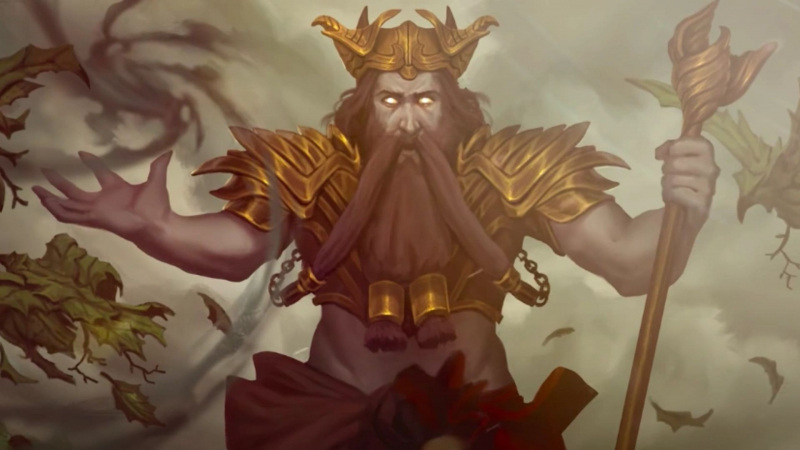
Photo: The Demonic Paradise Wikipedia 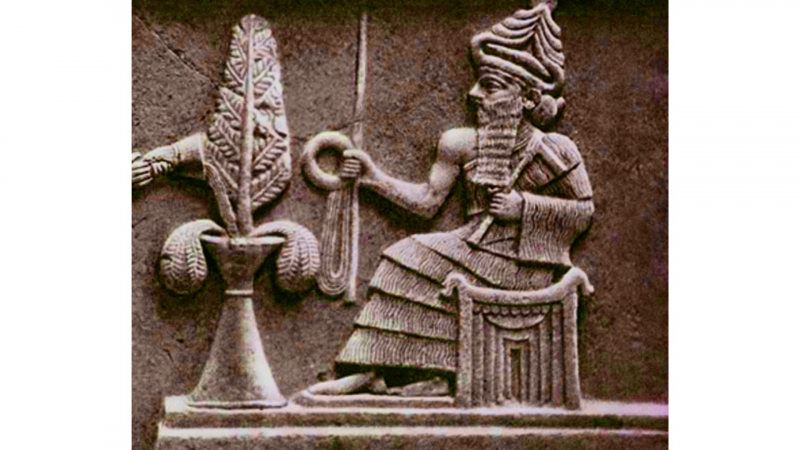
Photo: Pinterest -
Marduk is thought by scholars to have first manifested as an agricultural god who was venerated as the protector of the city of Babylon. Marduk rose to prominence in the Mesopotamian pantheon when the Babylonian Empire expanded as a regional political force.
Marduk evolved into several other gods over time, including An and Enlil, before emerging as one of the most significant and potent gods in Mesopotamian history. When he was most revered, Marduk was regarded as the supreme ruler who oversaw everything "in heaven and earth," the king of the gods. As a result of his victory over the goddess Tiamat and her army of primordial chaos, Marduk was also credited with contributing to the creation of the universe and establishing order in the material world. Marduk, however, was seen as a god of both creation and destruction because one of his principal responsibilities was to keep the universe in balance. Marduk was essential to the cosmology of later Mesopotamians because he was a god who contributed to the creation of the universe and brought order to the natural world. Marduk, who was a god of both creation and destruction, was also connected to actual tragedies, such natural disasters. These characteristics of Marduk, along with his supreme authority, would have probably given the Mesopotamians the impression that he had an all-pervasive influence.
Marduk was also significant to the political system of Babylonian Mesopotamia due to his standing as a supreme god. Every monarch of the Babylonian Empire had to obtain Marduk's blessing through a rite in which they gripped Marduk's statue's hands in order to be recognized as a ruler. The Babylonians were so reliant on Marduk that when one of his statues was removed from the city during a war, they were unable to carry out their religious rites until it was brought back.
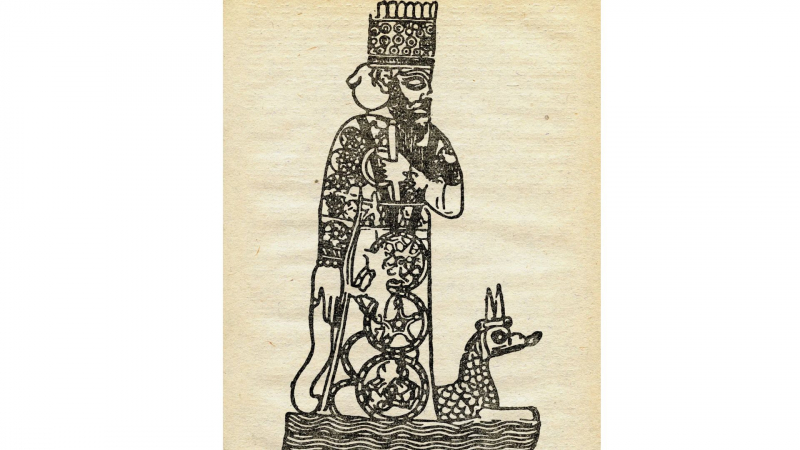
Photo: Encyclopedia Britannica 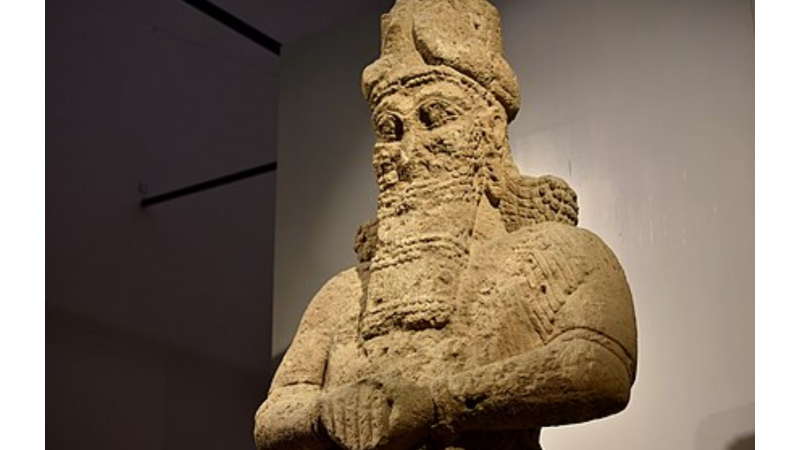
Photo: Wikiwand -
The sun deity of Mesopotamia was Shamash, sometimes known as Utu. Shamash was said to pull the sun across the sky every day, much like the Greek god Apollo. Because of their conviction that Shamash could see everything that occurred on the ground, the Mesopotamians gave this god the reputation of being a god of justice and truth. Shamash became the main deity of justice in the pantheon of Mesopotamia as a result. The goddess of love and battle, Ishtar, had a twin brother named Shamash. Shamash was revered all over Mesopotamia, but his main shrines were in the towns of Sippar and Larsa.
Shamash was not credited with creating the universe, in contrast to some of the other significant deities in the Mesopotamian pantheon. Instead, he was significant because he made sure the sun rose every day, maintaining the physical universe. The sun was essential to Mesopotamian agriculture since they were an agrarian people. Shamash's status as a significant deity was established by this alone, but his function as a god of justice in Mesopotamian society was also very important. Shamash was considered to be the final judgment of both mortals and other Mesopotamian deities, and he was credited with giving the rule of law to people. Some academics think that the Code of Hammurabi, one of the earliest legal systems in human history, was intended to be a contract between King Hammurabi and the god Shamash. Shamash was also involved in enforcing legal contracts, treaties, and business transactions.
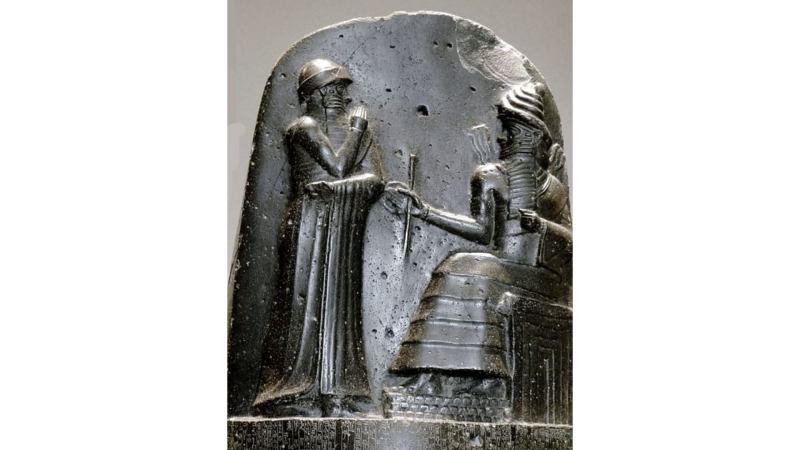
Photo: World History Encyclopedia 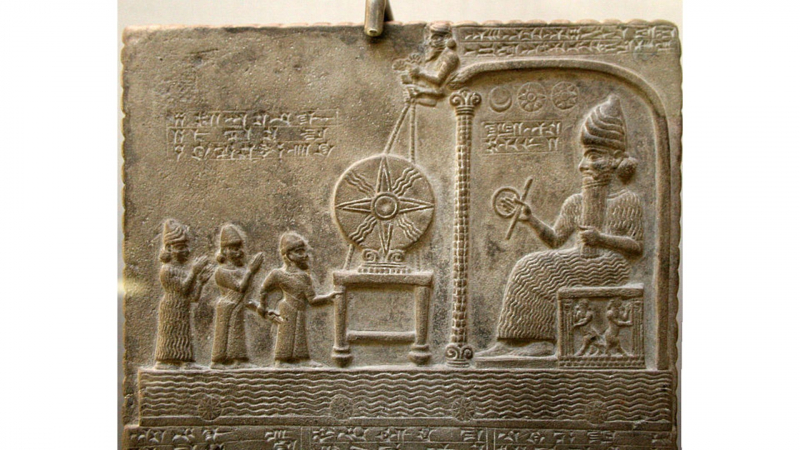
Photo: Marduk take the wheel -
The Mesopotamian god of the moon was called Nanna. One of the oldest gods in their pantheon, this one is referred to as "Sin" in various sources. Nanna was primarily a lunar deity, but he was also thought to be able to predict the future and have power over the fates of people. As a result, this god was closely linked to rites and magic. Nanna in particular was associated with astrology, omens, and divination. Ningal, the goddess of fertility and reeds, is named as Nanna's wife. Nanna is also listed as the son of Enlil. Nanna is said to be the father of Ereshkigal, Ishtar, and Shamash in certain Mesopotamian writings. Nanna was revered throughout Mesopotamian history and his religion was extensive in the Fertile Crescent. He was one of the oldest gods in their pantheon. The Great Ziggurat in Ur, a Sumerian city, was devoted to Nanna, whose religion was concentrated there.
Nanna's significance stemmed from his function in upholding the physical universe, much as Shamash. The Mesopotamians relied on Nanna to keep the moon from disappearing, much as they thought they would not have the sun without Shamash. The lunar phases were used by the Mesopotamians to split their annual calendars, which also used the moon to keep track of time. As divination and the study of omens were fundamental to Mesopotamian nations' belief systems, Nanna was also significant to their religion. Because religion was frequently incorporated into Mesopotamian politics, Nanna also had sway over the decisions made in court cases and was frequently requested to "illuminate" the truth. That's all aboout the last most influential gods of Mesopotamia.
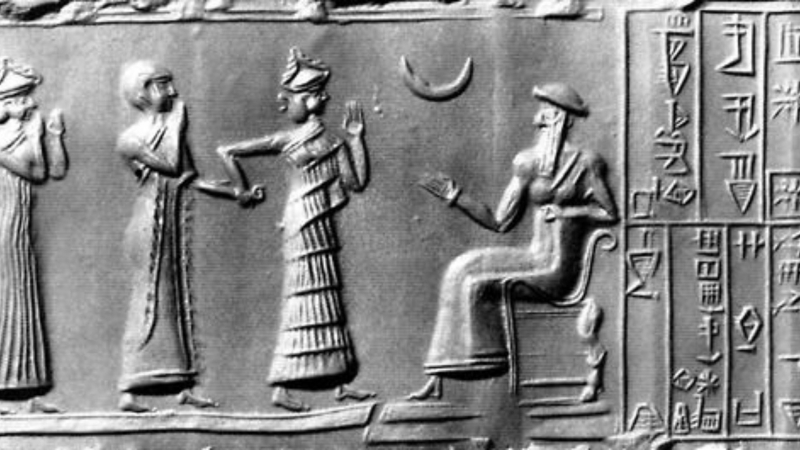
Photo: Pinterest Source: The Legends of History








